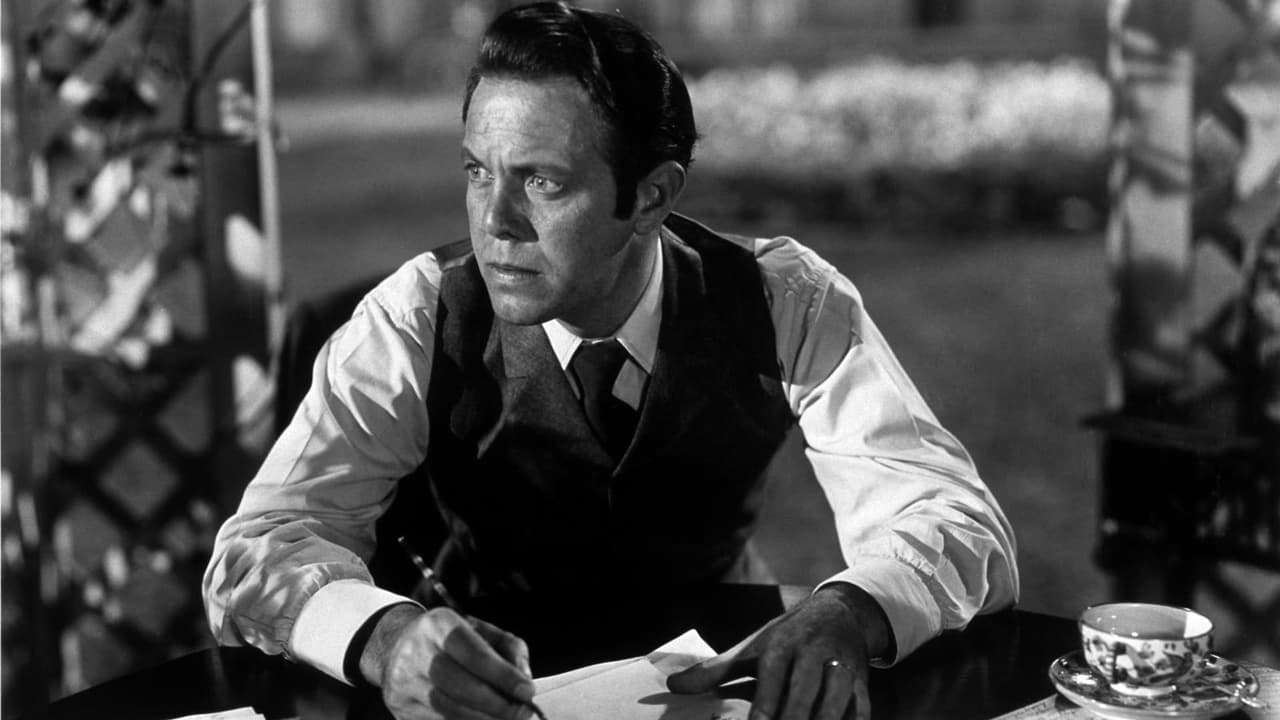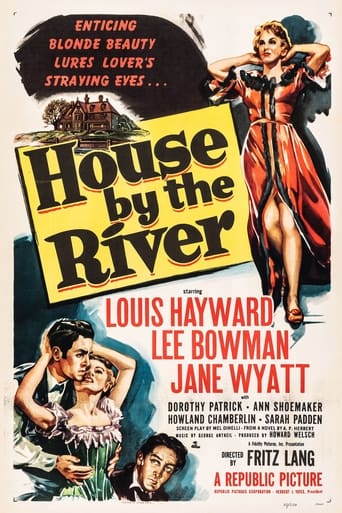

Sadly Over-hyped
... View MoreIt's fun, it's light, [but] it has a hard time when its tries to get heavy.
... View MoreThe movie is wonderful and true, an act of love in all its contradictions and complexity
... View MoreGreat example of an old-fashioned, pure-at-heart escapist event movie that doesn't pretend to be anything that it's not and has boat loads of fun being its own ludicrous self.
... View MoreWhile his wife is away, diabolically clever writer Stephen Byne (played by Louis Hayward) makes an unwanted romantic advance upon his maid (Dorothy Patrick). When she screams he panics and strangles her to death. He manipulates his gentle loyal brother John Byrne (Lee Bowman) into helping him hide the body. They place the body into a sack and dump it into a nearby river, but unknown to both of them the sack has a named stitched into it ... that of the innocent brother. The innocent John is wracked with guilt, while the devious Stephen is happy to seemingly be in the clear. This movie was directed by German émigré Fritz Lang, the man responsible for the brilliant classic thriller, M, and early science fiction classic Metropolis. His films tend to be dark, tense and brilliant. This is one of his best.
... View MoreI must say that I watched this movie because it's from Fritz Lang. In one hand I like the way he worked the main character, the evil human side that he always show in his movies. But in the other hand in my opinion the movie is very predictable,I guessed how it was going to end, the way the story was going to run and that's not very good. To appreciate this movie you must understand the evil/good way Fritz Lang shows humanity from a very fiction way like Metropolis or a very could-happen-to-you way like this movie. In my opinion the rhythm is a bit slow, I liked more the way he directed Metropolis or Dr Mabuse, the acting wasn't great, but if you like Fritz Lang, watch it.
... View MoreHouse by the River (1950)A straight up Gothic murder scenario with echoes of the 1945 "Spiral Staircase." A family with two brothers at odds with each other is living in a house and one of them is a murderer. And at first only the audience knows who. Their relative isolation on the banks of a wide river means only that they will have little help when danger occurs. The neighbors and police and few and far.Louis Hayward plays the main character, Stephen Byrne, a writer and a bit of a self-important cad. Hayward has an odd style on film during this era, attractive and likable at first, but with an acerbic humor and some kind of unworkable stiffness, as if you know he's always performing. But he's clever about it, and when you realize he isn't meant to be exactly lovable, he's pretty well cast. Byrne's brother, wife, and maid all come through with solid if uninspired performances, and you wonder exactly what held everyone back. Fritz Lang has many more successful melodramas than this one.I think the weakness is largely the raw material, the story itself, which is a bit straight forward. One brother commits a murder, the other is drawn into helping cover it up, and then the tensions build between them as an inquest raises questions. It has moments, but there are no further twists that work. The ending is out of character, almost comical in its false (and unlikely) horror. Along the way, though, are a series of nice scenes, inside the house at night, along the river at night, at a party meant to hide the killer's guilt, and so on. The music is especially helpful in jabbing the audience at key moments. American Georges Antheil was a composer famous for his avant-garde pieces in the 1920s in Europe before settling into a Hollywood routine. You can detect, and appreciate, the edge he brings to the score. The photography by contrast is good without rising up to the possibilities of these kinds of settings--the house, the river, the dock, all have more dramatic potential that we just don't see.
... View MoreIn spite of being a part of Fritz Lang's fascinating shift from Nietzschean supermen to everyman protagonists suddenly pitted in a situation of life and death, House By the River is a mere exercise for him. He makes little use of the limited abilities of the cast, the setting, the story and even lets the film fly with a particularly shabby ending. The film remains enjoyable for the most part as a thriller about an unhinged central character, a guilt- consumed accomplice, a terrible crime, and the symbolic shift of fate caused by the nearby river. The story sets in motion right away, taking advantage of the development of the characters before we know much about them, Lang viewing each complicit, suspicious and unwary character with an omniscient eye. His impartiality is what I most admire about this almost-but-not-quite effort, because the decisions the characters make, the mistakes, the virtues, everything is vulnerable to the forces of nature which surround them.Each nuance, from the opening shots of the neighboring river and the wind in the trees, has a conscientious reverberation. Our anti-hero declares to change, but the characters of environment, the wind and the water, are the decisive intermediaries of whether he will succeed or not in breaking or committing to that promise. This is a great device, but the film is particularly weak in so many departments, mainly in comparison to Lang's previous and subsequent films noir which hit the nail on the head, like M, Scarlet Street, Hangmen Also Die, The Big Heat and Human Desire, all top-notch achievements that show his effortless capability for much stronger acting and symbolic resolutions. With House By the River, he seems to want to return to his more Gothic roots, perhaps even to the extent of his Expressionist silent films, and the cinematography is generally fine save for the finale, when expression is needed most. Louis Hayward, who plays the dubious protagonist, stands out, but only in comparison to his surrounding ensemble.
... View More